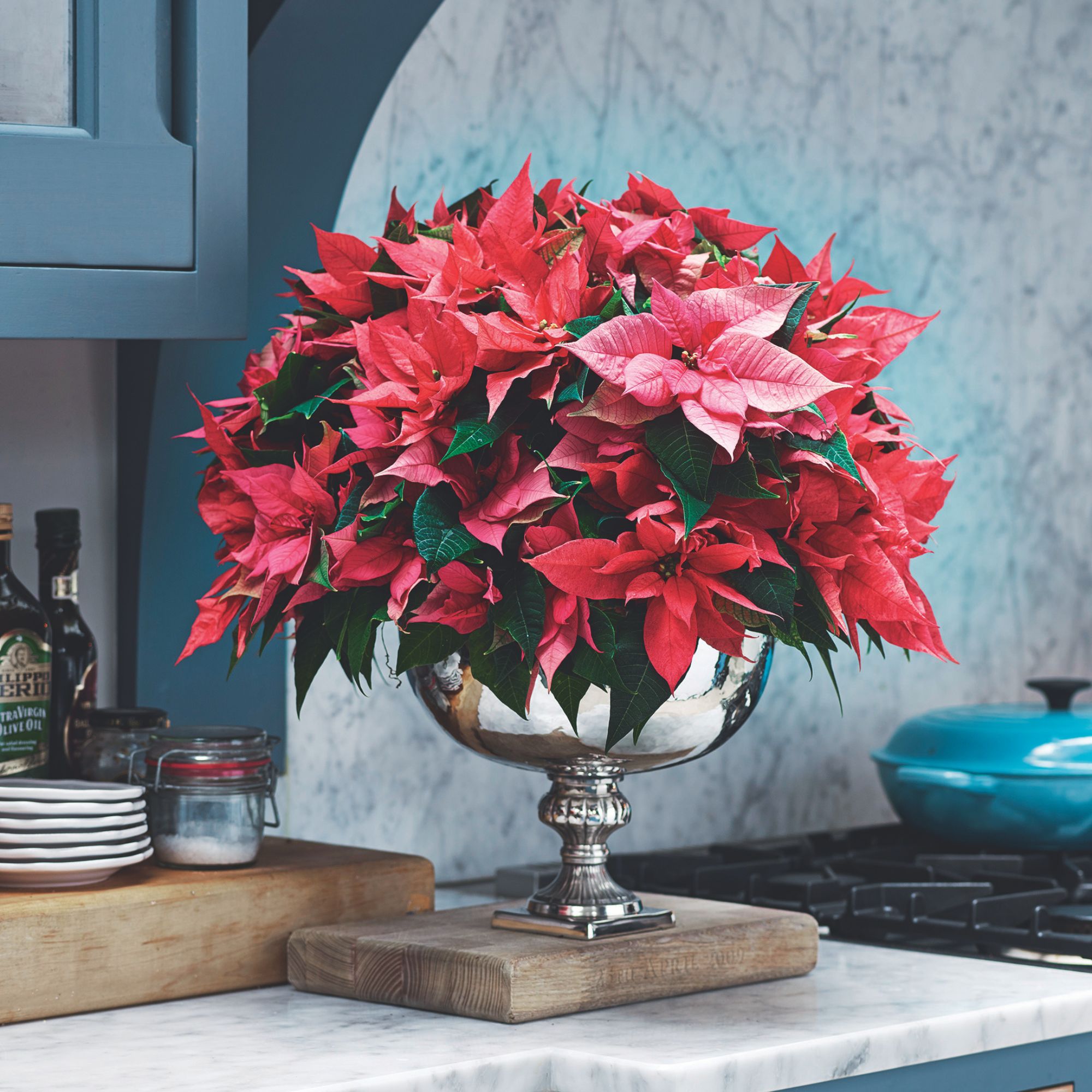
Why is my poinsettia dropping leaves? We've heard poinsettia owners asking the question a lot over the years, and it's more common than you'd think.
Learning how to care for poinsettias isn't exactly straightforward, and if you're wondering how long a poinsettia will last, it all depends on how well you look after it. If you've noticed your plant dropping leaves all of a sudden, it could be down to a number of reasons.
'Poinsettias are sensitive plants,' says Elise Harlock, houseplant expert at Prestige Flowers. 'They don't like temperature fluctuations or irregular watering.'
We've rounded up the five most common reasons why a poinsettia might drop its leaves, with solutions from houseplant experts.
Why is my poinsettia dropping leaves?
While we’d love to tell you that it’s normal for poinsettias to drop their leaves, that’s not the case. Ultimately, this plant will only drop its leaves if it’s in a state of stress or shock. Because of this, you need to act quickly if you want to save your poinsettia in time for Christmas.
But why is my poinsettia dropping leaves in the first place, we hear you ask. Here are five of the most common causes.
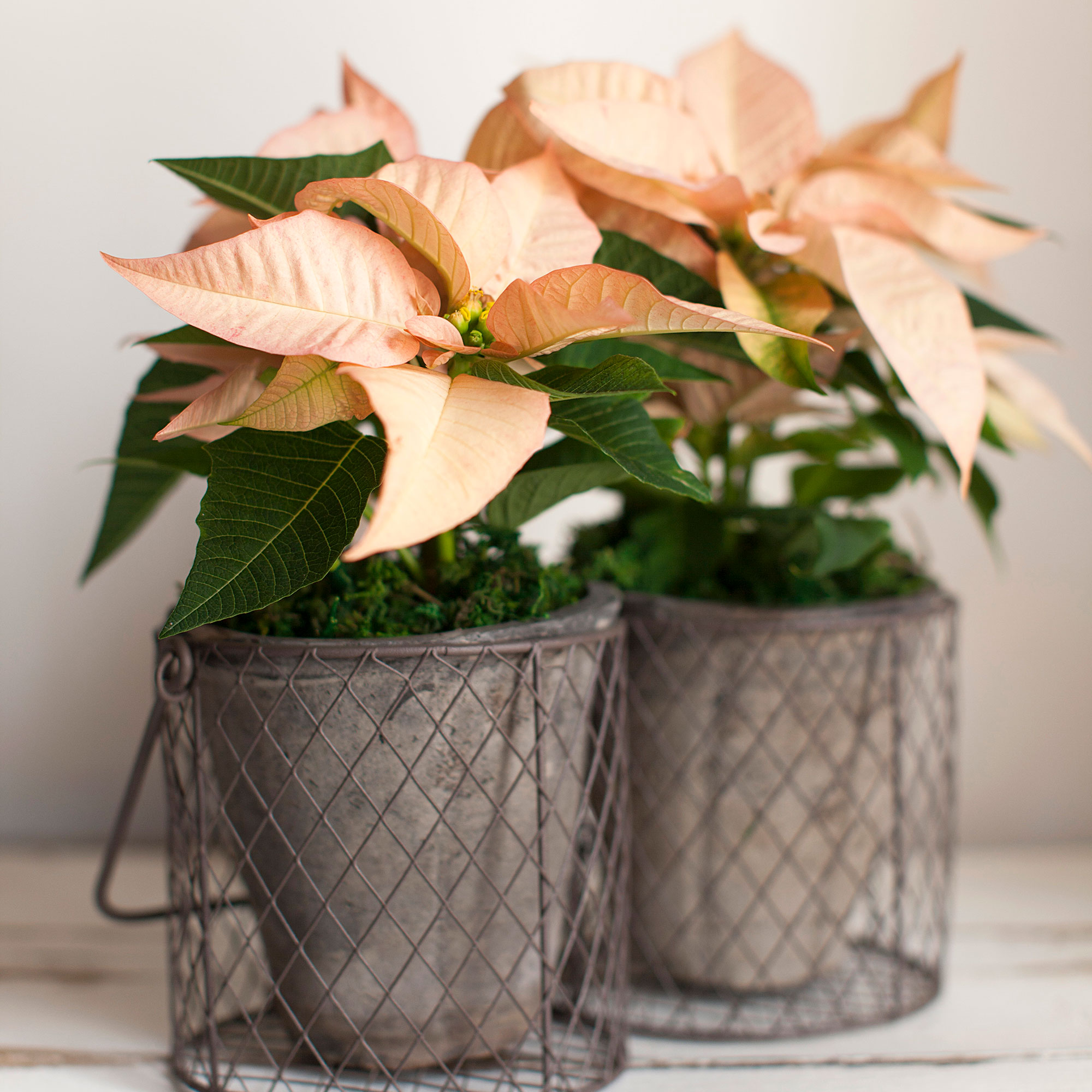
1. Overwatering
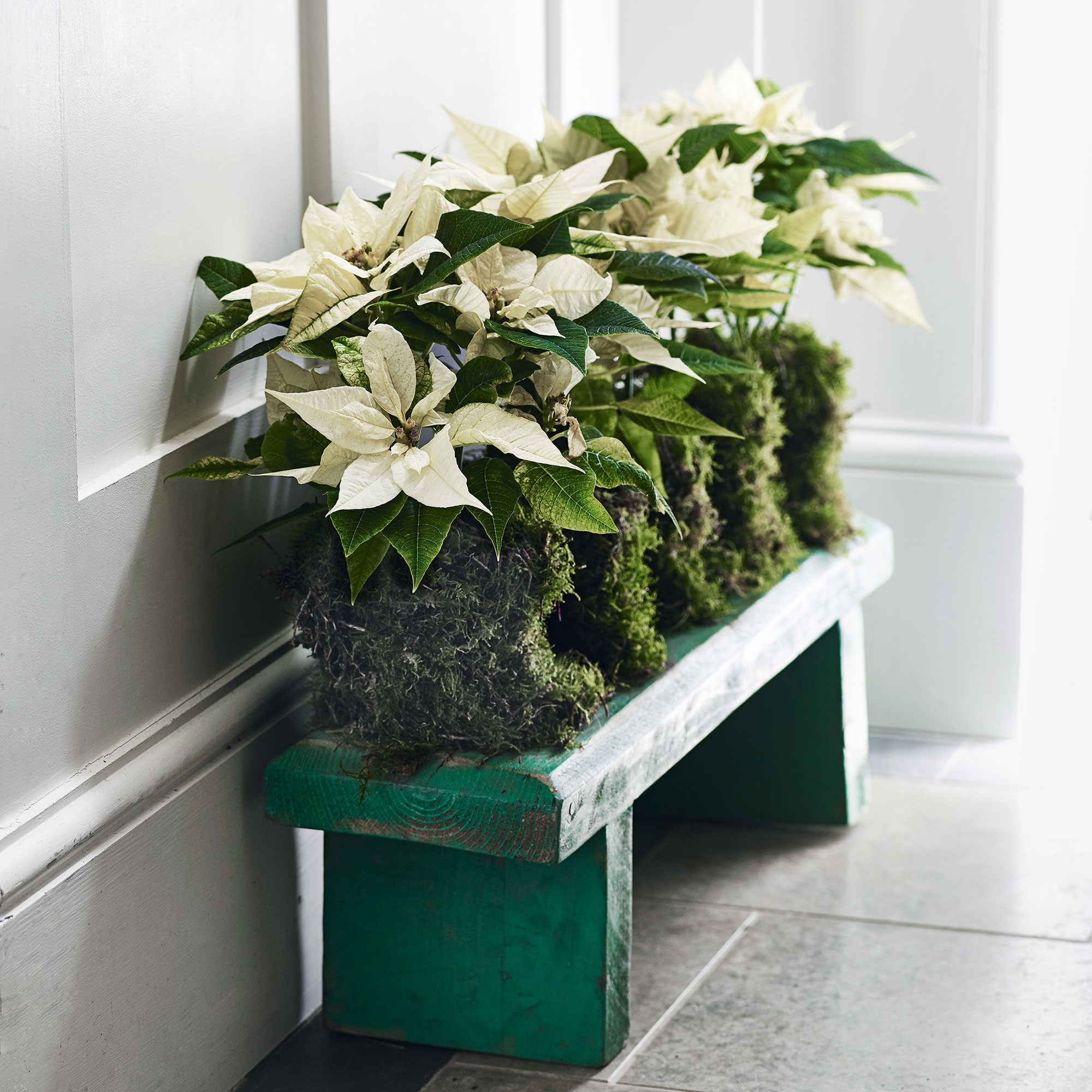
Overwatering is one of the most common reasons behind a poinsettia dropping leaves.
'To ensure your poinsettia remains healthy and vibrant, water it consistently, allowing the soil to dry slightly between waterings,' advises Andy Little, houseplant buyer at British Garden Centres.
You should only water a poinsettia when the top inch of the soil is dry, but the foil or plastic wrapper can trap excess water and moisture, leading to overwatering and root rot. Visible signs of overwatering include wilting or yellowing leaves that will ultimately drop off, at which point you'll need to learn how to save an overwatered plant.
If your poinsettia has been dealing with root rot and overwatering for a while, you may struggle to bring it back to its former glory. But if it’s only been overwatered once, take off the plastic wrapper, make sure there are drainage holes in the pot, and let it dry out for a while.
2. Underwatering
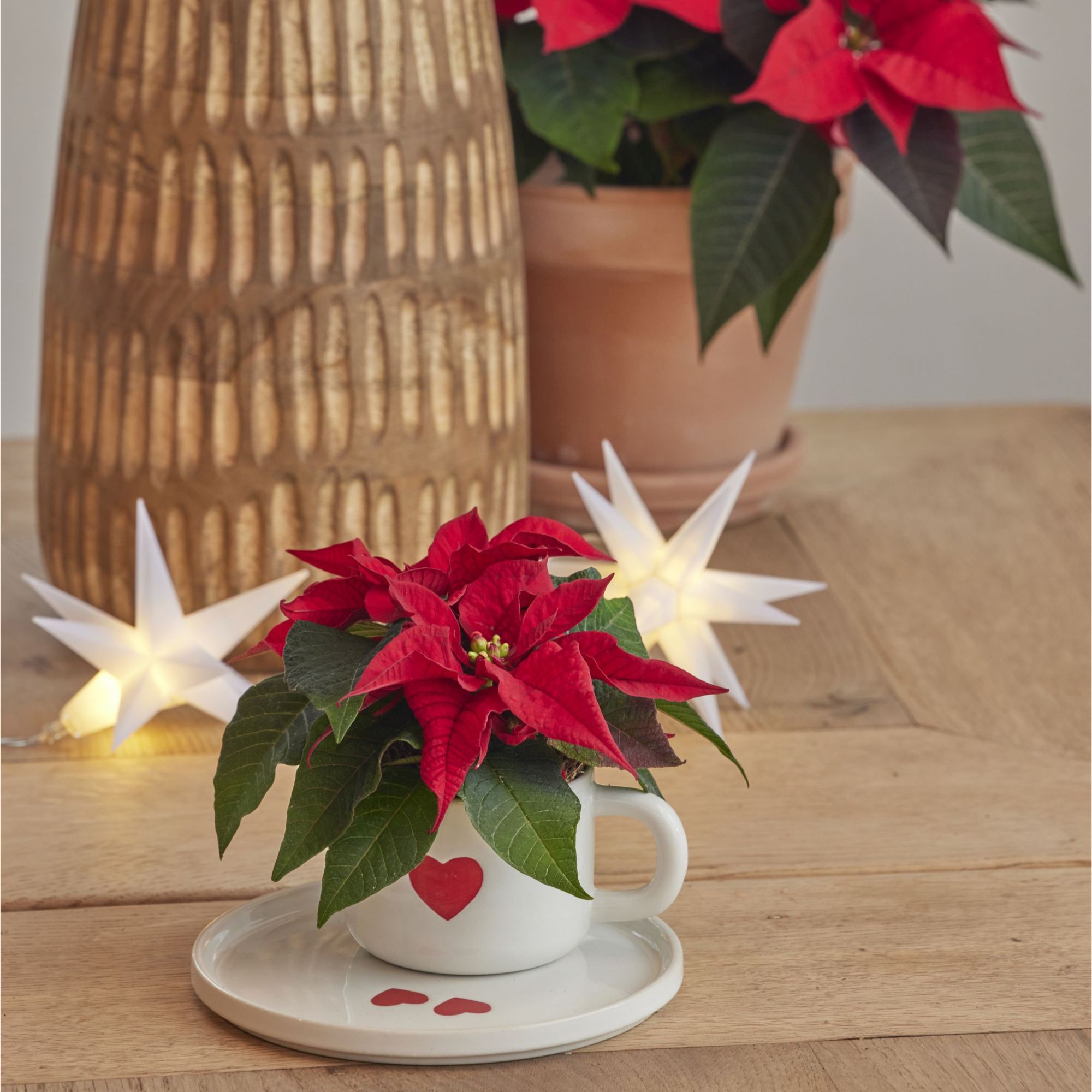
Just as overwatering can result in your poinsettia dropping its leaves, so can underwatering. And while this plant is native to the warm climates of Mexico and Central America, poinsettias in pots still require a regular watering schedule.
'The soil of poinsettias should always be slightly damp,' says Monique Kemperman, lead PR and campaign Manager at Flower Council of Holland. 'This means watering every few days, but frequency varies depending on the specific conditions.'
If your poinsettia is underwatered, the leaves will turn brown at the tips and start to fall off. The soil will also be incredibly dry, even when you push your finger deep into the pot.
3. The humidity isn’t quite right
As they’re tropical plants, poinsettias require a lot of humidity to survive and thrive. That’s why it’s so important to mist them every day. However, the wrong level of humidity can impact the health and well-being of the plant, ultimately forcing it to drop its leaves.
'If your poinsettia’s leaves turn yellow and drop off, you should place the plant in a cooler and lighter spot and increase the humidity,' says Monique. 'That should perk it back up.'
The ideal humidity for growing a poinsettia plant is 50% – 75% relative humidity – which is a little bit higher than what the humidity of a room should be. And although we love the best dehumidifiers as much as the next person, you may find that you need to keep the appliance away from your poinsettia if you suspect that it’s struggling with low humidity. But a poinsettia can also start to drop its leaves when it’s too humid, so make sure you aren't overdoing it.
If you’re unsure what the humidity levels are like in your house, the best way to check this is by using a hygrometer, like this ThermoPro TP49 Small Digital Hygrometer from Amazon.
4. It’s too cold
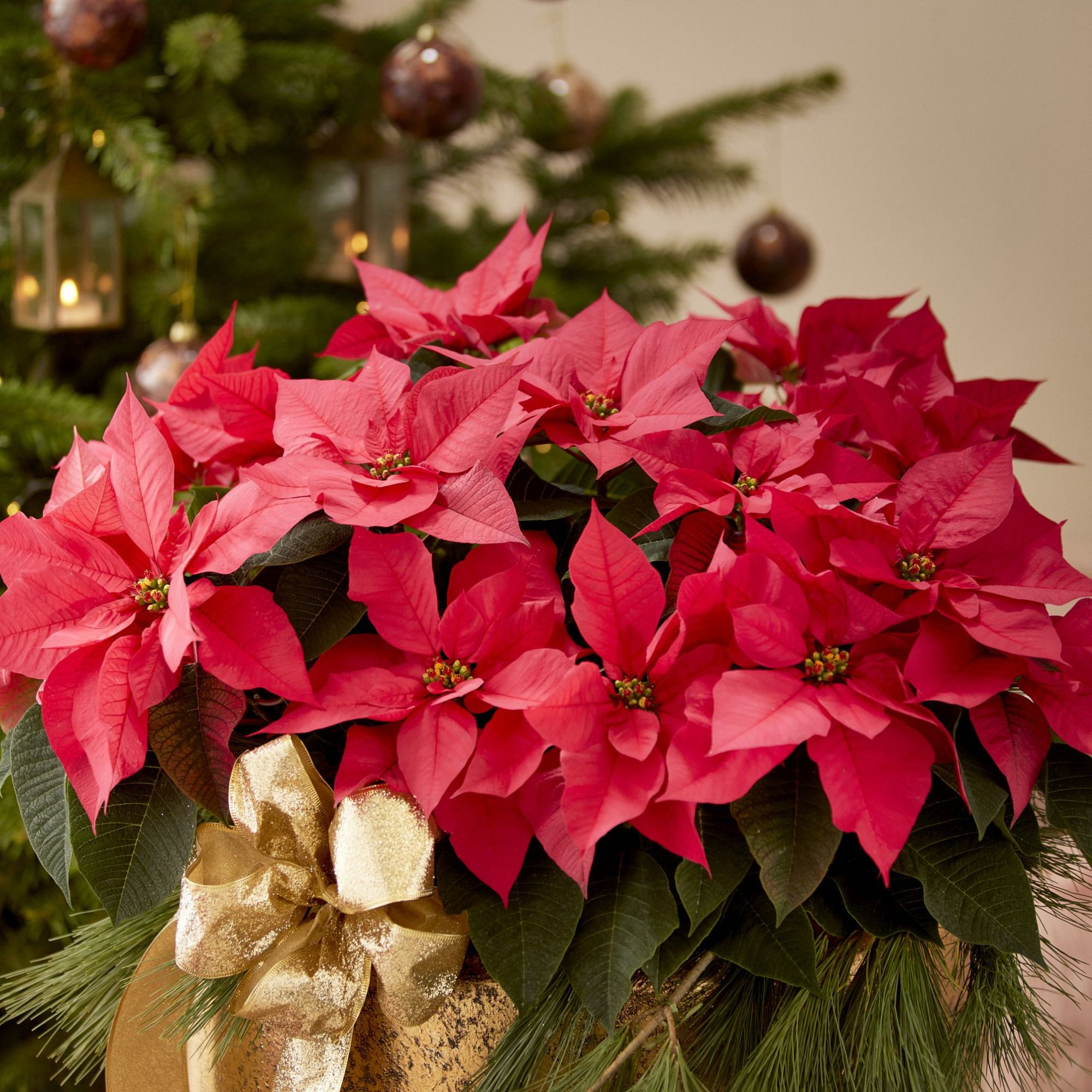
Poinsettias are extremely sensitive to temperature changes which can cause the leaves to drop.
'Poinsettias are delicate plants originating from Mexico and thrive in warm conditions,' says Andy from British Garden Centres. 'They are susceptible to cold temperatures and draughts and will start to drop and leave their leaves when exposed to temperatures below 12°C.'
Stability is incredibly important, which is why you should also steer clear of draughty doors and windows. So, if you’ve been keeping your poinsettia on a windowsill or on a table in your hallway and you’ve noticed the leaves start to wilt and drop off, you need to move it as soon as you can.
5. It’s not getting enough light
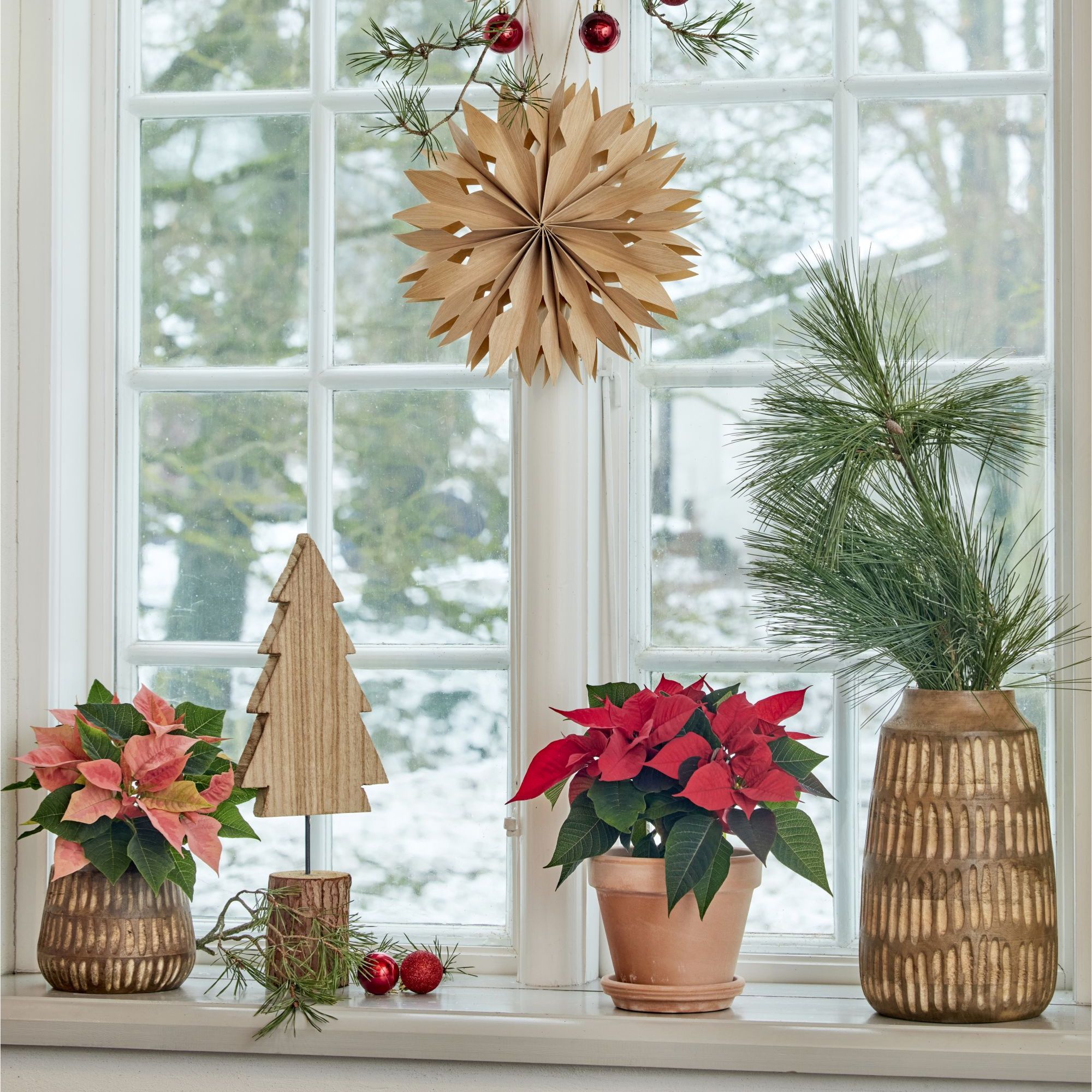
Are the leaves of your poinsettia limp and leaning towards a window or other light source? That’s a sure sign that it’s craving some extra light, and over time, the leaves will start to fall off.
Poinsettias need at least six hours of sunlight every single day. But while some people believe windowsills to be the perfect home for this plant, this location could also be doing more harm than good due to the draughts and the cold window panes.
'Make sure you place the plant in a bright, indirect light source away from any drafts or radiators,' says Elise from Prestige Flowers.
What you'll need
FAQs
Will a poinsettia come back after losing its leaves?
If your poinsettia has lost its leaves, not all hope is lost; with the right care, your plant can bounce back, but you'll need a lot of patience.
'If the roots are still firm and white, the plant has a good chance of recovery,' explains Elise from Prestige Flowers. 'It may not be as vibrant and festive immediately, but consistent nurturing can restore it over time.
'Pruning and refreshing can be key. Trim back any dead or dry stems to encourage new growth. If the soil is compacted, consider re-potting your plant with fresh, well-draining potting mix.'
How do you keep poinsettia leaves from falling off?
The best thing you can do for your poinsettia is to keep it in a warm and humid room, where it can get at least six hours of bright (but indirect) sunlight every day. It’s also important to keep on top of watering, making sure that the soil never goes too dry, and making sure you give the plant a mist every day.
By doing all of those things, you should ensure that your poinsettia stays healthy and happy throughout the festive period.
A poinsettia is the perfect Christmas plant, so don’t let dropping leaves ruin it for you.







